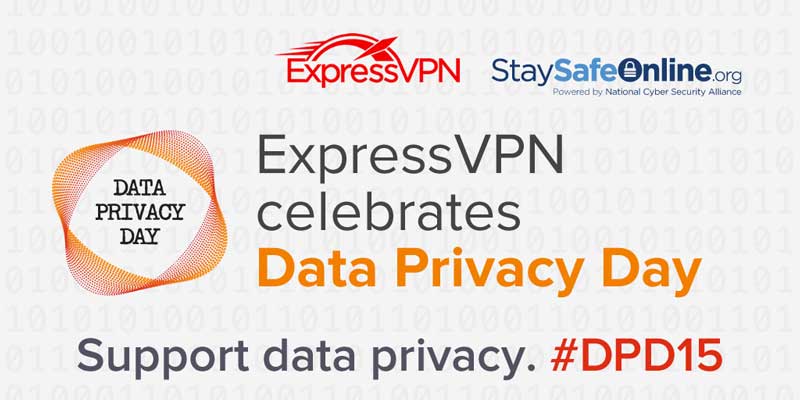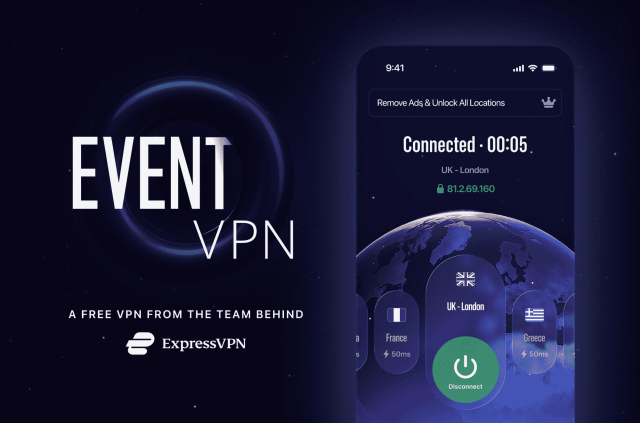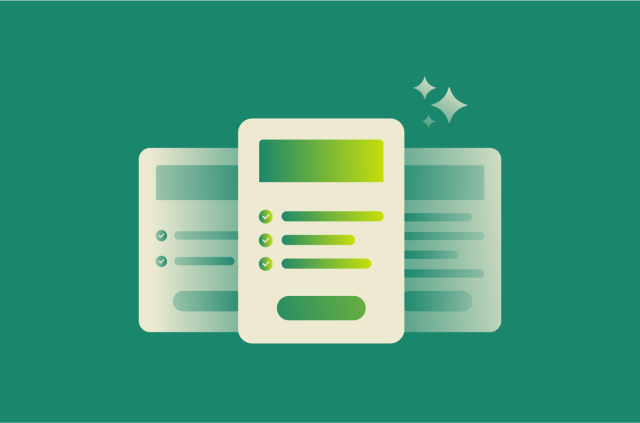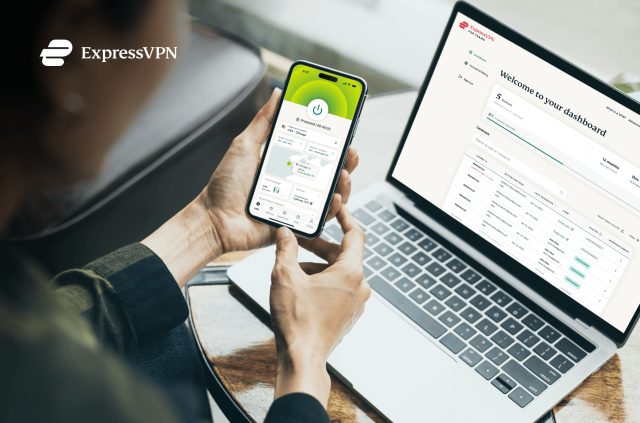
January 28 2015 is Data Privacy Day, an international effort spearheaded by staysafeonline.org to help promote the effort of ‘Respecting Privacy, Safeguarding Data and Enabling Trust." It began in the US and Canada in 2008 and has since grown into an awareness day celebrated worldwide.
We at ExpressVPN are proud to take part in this event, as we firmly believe that every individual has the right to privacy. We are concerned by the sheer amount of your personal data that third parties have access to, and the increasing ease with which they are accessing it. Therefore events like Data Privacy Day are essential, helping to promote and raise the awareness needed to educate people on the issues involved with your data privacy.
What are the goals of Data Privacy Day?

- Educate consumers on how their personal information can be breached, and raise awareness on the risks of sharing personal information.
- Empower consumers to raise their expectations of how third parties ought to use and manage their personal data.
- Equip consumers with the skills to actively manage their online lives with simple, concrete tips for safeguarding their online security and privacy. Improve consumer awareness of the implications of invasion of privacy.
- Encourage businesses and corporations to be transparent about how they collect, maintain, and use our personal data, and to effectively communicate all privacy and security controls available to consumers.
What is Data Privacy?

Data privacy is about your freedom to control who has access to your personal information, ideas, and activities on the Internet. Despite the fact that so much of our day-to-day activity takes place on the web, some of us rarely pause to consider that third-party entities might have access to our data, and that they might be using this data for profit.
When you browse online, you are providing third-party agencies around the world the necessary data to monitor your online actions and browsing habits. This means that anything you read or look at will be analyzed to build up a profile of you based on your IP address, your browser, your browsing device, your location, and so on. Companies use this data as they please, most commonly for marketing purposes, or for selling products to you. For example, a Wall Street Journal article details how Orbitz was showing Mac users pricier hotel options than Windows users.
As Internet users, we have the right to demand that our privacy is ours, and ours alone. We demand that third parties do not have the right to snoop and withdraw our data without our consent.
- Learn what Cookies and Behavioural Tracking are with our guide on what meta data is. You can also read the how you can opt out of online behavior advertising with the Network Advertising Initiative (NAI)
- The Health Insurance Portability and Accountability Act of 1996 is a key fundamental in Health Privacy. It acts to protect the health privacy of individually identifiable health information. Read more about this here, and here.
- Identity Theft is a form of stealing, in which a fraudster obtains personal information about a specific individual and passes it off as their own. Obtained information could be anything from information you mention about yourself on social media sites, to stealing credit card numbers and passwords in order to commit on and offline crimes.
- With mobile internet increasing rapidly, the need for better education on mobile safety tips is paramount. With the amount of downloadable apps now available, Data Privacy Day aims to help educate users on how apps use your personal privacy.
- Online Services - Banking, Dating and General Guidelines - Internet shopping is increasingly popular, but that also means more websites which accept credit card information. Be careful about where you upload financial data as unsecure websites could potentially steal and misuse your financial data. Staysafeonline.org have some great information in their privacy library.
- Student Privacy - The Family Educational Rights and Privacy Act (FERPA) is the primary federal law which deals with education privacy. You can access this toolkit for an in-depth and step by step guide for Family Education Rights and Privacy.
Data Privacy & You

Data privacy affects everyone. Have you ever wondered why certain ads follow you around the Internet? Every time you visit a website, it creates a cookie in your browser. These cookies indicate to Internet marketers that you are interested in a certain product, which triggers them to push the product out to you more rigorously. (You can clear cookies from your browser settings to keep the pesky ads at bay!)
How to protect your data privacy
- Use strong passwords for your email, forums, and all social media accounts you use
- Stay safe from spyware threats and regularly monitor your machine for threats
- Keep your operating systems and vulnerable applications up to date
- Don’t turn off your User Account Control
- Go online with a non-monitoring secure browser like DuckDuckGo
- Don’t trust public WiFi networks, e.g. those found in coffee shops
- Don’t click on random links and be careful of links in email attachments
- Always log out of accounts
- Be careful of information you share on social media accounts
- Don’t enter sensitive information into any unsecure URL (i.e. one that doesn't use HTTPS)
More privacy tips from StaySafeOnline.org
- Be careful with what personal information you share online. Many apps and websites require you to enter your personal information when you sign up for their services. When you enter information like your date of birth, address, and other personal details, remember that you can never know for sure who can see it.
- Make your profile private. Many social media sites and platforms have privacy options that let you determine what aspects of your profile are visible to the public. Take advantage of these to control what the general public can and cannot see about you!
- Be aware of who can see your posts.It’s fun to share status updates, photos, and videos with your friends. But who else can see the things you post on social media? Be aware of who can see your stuff, and adjust the privacy settings of your posts if you’re not comfortable with your friends’ friends knowing where you went for dinner last night.
- Use the Golden Rule. Treat others as you would like others to treat you. In other words, don’t post things about a friend that you wouldn’t want them to post about you -- like their address, the name of their workplace, or an unflattering photo of them sleeping.
- Think before you post. Whenever you’re about to share something on social media, consider that once something goes up on the Internet, it’s there indefinitely. Even if you delete it!
- Use 2-step verification. Nowadays one password isn’t enough to protect your online accounts. Keep bad guys out with 2-step verification.
Data Privacy & The Law

So how far should privacy be taken?
In May 2014, it was reported that some of the world’s top security experts and researchers had been threatened and accused for their role in exposing vulnerabilities in Internet infrastructure. These Internet experts had used their hacking skills to expose security flaws with the intention of fixing them before black-hat hackers could exploit the vulnerabilities they had identified.
Problem is, the US Computer and Fraud Act outlaws any sort of hacking, loosely defined as the act of breaking into a private network or system.
Hacking is not always nefarious. For example, by hacking private computers, the Critical.IO project uncovered -- and fixed -- a weakness in the UPnP protocol that put up to 50 million computers at risk.
There is thus a growing consensus that cybercrime laws should consider the intent behind hacking, and not just the act itself.
This begs the question: what will happen to Internet privacy in the future? As the world becomes more connected, and more and more devices and household goods require personal information, it can be said that The Internet of Things could potentially put your whole identity online.
Join us! Get involved in Data Privacy Day!

If you’re concerned about data privacy, whether it be for yourself, your children, or your company, there are many ways you can participate and spread the message -- not just on Data Privacy Day 2015, but all the time.
Social Media Security
Get the message out there! Post about Data Privacy Day and spread the word to your friends and family. You can also like the Data Privacy Day Facebook Page and Twitter account.
Once you have liked the page, go and like our ExpressVPN page or follow us on Twitter, where we regularly post about data privacy and Internet security issues. When you post, remember to use the official Data Privacy Day logo and banners!
Tell Your Loved Ones!
Send emails to friends and family letting them know about the importance of data privacy.
Tell your family members, your boss, your colleagues and spread the word about how to keep your privacy.
You can also download the Data Privacy Day promotional material here, print them out and display them in your office or at home.
As a company, ExpressVPN strives to be at the forefront of data privacy. We believe it is our duty to make data-privacy education accessible to the masses, and we are committed to promoting data-privacy initiatives on an ongoing basis.
ExpressVPN agrees with DPD that every individual needs to know about their data privacy rights and that the Internet should not turn into a wild west where everything is moderated and all forms of data are collected, creating a nanny state.
We use the Internet to do all kinds of marvelous things: keep in touch with loved ones, run our businesses, handle transactions, and build communities. Let’s do our part to make it a safe and secure space for everybody!
Like this post? Share it!
Data Privacy Day 2015 - ExpressVPN
Take the first step to protect yourself online. Try ExpressVPN risk-free.
Get ExpressVPN










